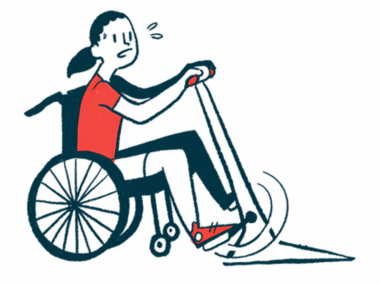Exergaming May Be Better Than Other Exercises, But Study Needed
Review found superior gains in balance being reported and comparisons tough
Written by |

Virtual reality exergames — immersive video games whose play involves physical exercise — may be better than conventional exercise at easing certain symptoms of multiple sclerosis (MS), such as balance and upper limb function, a review of published studies suggested.
However, differences among the evaluated studies — in matters including disease severity, MS types, exercise duration, and the virtual reality (VR) platform used — made direct comparisons difficult, the researchers noted, adding that some form of exercise was generally better than no exercise across disease measures.
Future clinical trials should aim to further understand the potential benefits of these two exercise approaches, they added.
The study, “Comparing virtual reality exergaming with conventional exercise in rehabilitation of people with multiple sclerosis: A systematic review,” was published in Neuropsychological Rehabilitation.
Various forms of exercise have been evaluated as rehabilitation strategies for people with MS. Exercise is generally thought to improve motor and cognitive abilities, and ease a range of MS symptoms, including pain and fatigue.
VR exergaming is emerging as a popular form of exercise for MS. It’s been proposed that the virtual environment may help to engage patients, motivating them to exercise, and leading to greater therapeutic gains than with conventional exercises, like running, walking, or cycling.
Balance gains in MS noted with virtual reality exercises
To address the physical and cognitive benefits of VR exergaming in people with MS, a team of researchers at the University of Canterbury, in New Zealand, conducted a systematic review of published studies comparing this exercise modality with conventional exercise.
From a total of 703 studies identified across five databases, those covering 10 randomized clinical trials were included in the analyses. These studies were published from 2013 to 2021, involving 486 patients, ages 23 to 60, in total. Both sexes took part in trials for nine studies, while one included women alone.
Inclusion criteria based on the Expanded Disability Status Scale (EDSS) scores, a measure of disability, varied significantly across the studies, but no study recruited people with severe MS. In most, patients with a recent or current relapse were also excluded.
The VR gaming platforms, such as Xbox plus Kinect or Nintendo Wii, also varied among the studies. Exercise programs were quite variable, generally involving 20- to 60-minute sessions given over three to 10 weeks, for a total of nine to 40 sessions.
Researchers examined study data to compare outcomes, such as balance, upper limb function, cognition, fatigue, depression, and quality of life, between VR-exergaming and conventional exercise groups. Patient satisfaction and program adherence were also assessed.
Generally, data showed that “VR-exergaming is comparable and even superior to conventional exercise in almost every measure of MS rehabilitation that the studies evaluated,” the researchers wrote.
Five of the seven studies that evaluated balance found exergaming superior to conventional exercise, whereas two of the four assessing changes in upper limb function, including dexterity and speed of hand/arm movement, found exergaming to be superior. A third study included a group with a combined exergaming and conventional exercise program, and found the combination most effective at improving “bimanual coordination accuracy and consistency,” the study noted.
Two studies evaluated cognition, but only one directly. Both found exergaming led to better cognitive outcomes, overall.
‘Sufficient comparisons’ between these exercise forms lacking
One of the three studies assessing fatigue reported the VR-based program to be more effective than conventional exercise, while another found both exercise forms superior to a no-exercise control group. The final study found no difference between conventional exercises and a hybrid exergaming-and-conventional exercise program at easing fatigue.
Two studies of a program’s effects on depression were also conflicting, with one reporting that exergaming more significantly eased depression, while the other found no significant difference between these exercise types.
“Although the effects of VR-exergaming and conventional exercise in the rehabilitation of [MS patients] have been well expressed in several studies, sufficient comparisons have not been made between the two methods,” the researchers wrote.
“Both interventions seem to be effective in improving physical function,” they added, “while there are very limited studies comparing VR-exergaming and conventional exercise in improving cognitive abilities.”
With regard to quality of life, the researchers noted that studies either favored VR exergames or showed no difference between it and more common exercise programs. One reported finding conventional exercise to be superior at improving life quality.
While one study reported patients adhered better to the VR-exergaming program, two others found that satisfaction and/or compliance did not differ between the programs.
The significant variability in gaming platforms used for exergaming, the different types of conventional exercise offered, variety in outcomes measured in these trials, and differences in criteria used to select patient groups can make direct comparisons difficult, the researchers noted.
Due to these limitations, “data should be interpreted with caution and larger clinical trials are therefore needed,” the team wrote.
“Future research should focus on a more effective modality in which [people with MS] can target their rehabilitation priorities with long-term treatment,” the scientists added.






